Chatterbox Srl | Via Tempio 15 (front office via Tempio 27)
09127 - Cagliari (CA)
+39 070 773 8269
Mon - Thu 8am/12.30pm - 1/4.30pm Fri 8am/12.30pm - 1/3.30pm
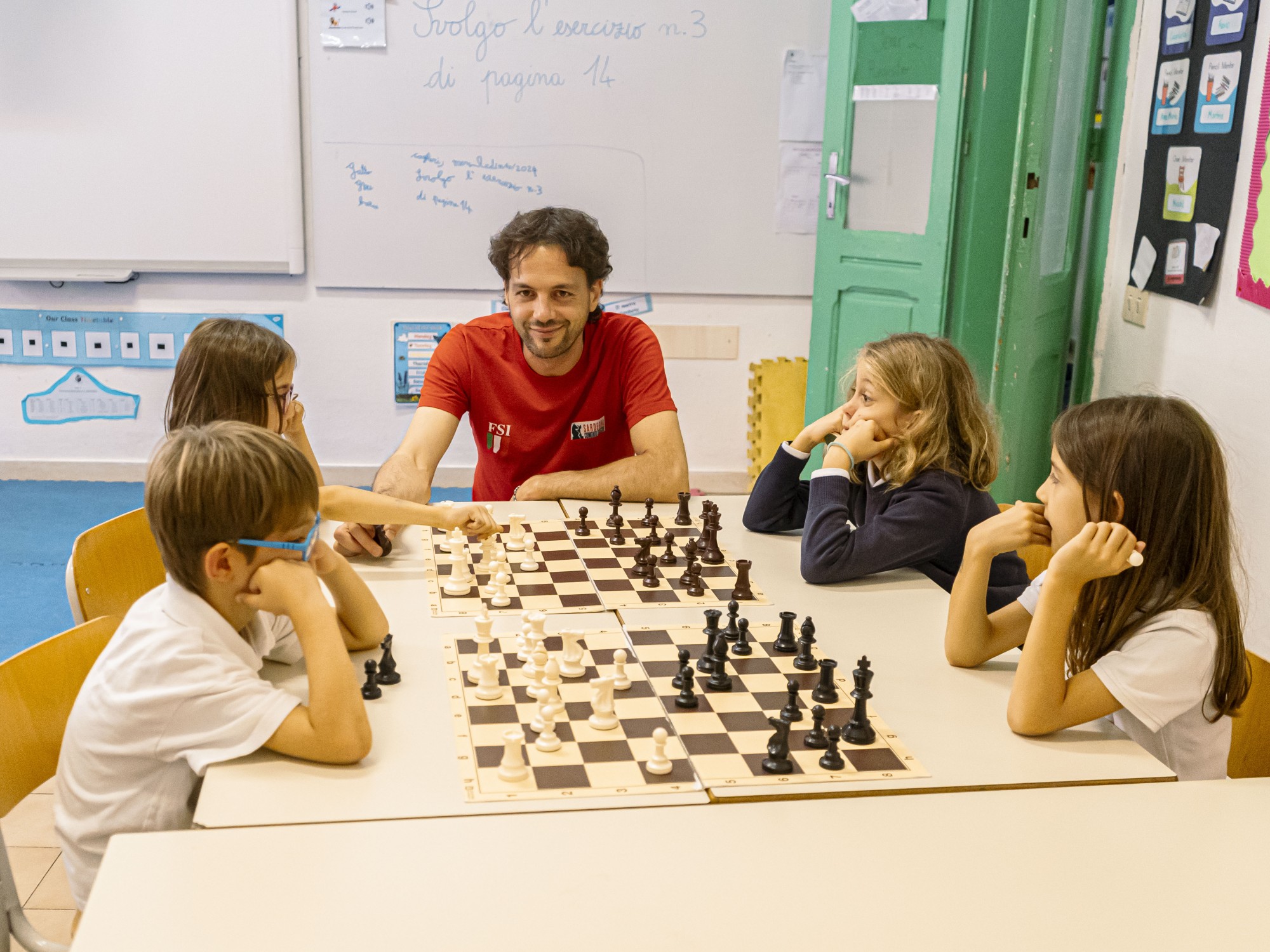
Interview with Isacco Ibba, the legendary chess master behind our extracurricular clubs.
The boundless enthusiasm our students show for chess is the result of a long and passionate journey with Isacco Ibba, the legendary chess master of our extracurricular clubs, who has dedicated over twenty years to promoting chess in Sardinia.
He is the president of the Mo.S.Ca. club (Movimento Scacchistico Cagliaritano) and has achieved numerous successes both as a player and as a coach. Beyond his personal triumphs, he has led several school teams to noteworthy results, as we’ve recently shared on our social media channels.
Today, we’re delighted to have a brief chat with him to learn more about his experience with Chatterbox and find out what the near future holds.
Q: Maestro Isacco, can you tell us about your experience working with Chatterbox in our extracurricular clubs?
A: My journey with Chatterbox began in the fall of 2016 with a small group of curious and enthusiastic students. At the start, there were around fifteen kids — now there are about thirty across all the clubs. Every week, I run sessions in the extracurricular club almost year-round, with a schedule that includes between 25 and 30 meetings in total.
Currently, we have three groups: one for the little ones in Reception and Year 1, an intermediate group with Year 2 and Year 3, and finally an advanced group for students from Year 4 to Year 6. So we go from beginners in primary school to preteens who are already playing in tournaments.
Over the years, several students have qualified for national individual championships, and as a school, we’ve consistently qualified for the national school championships in the past two years. Standout players like Roberto L. and Sebastiano S. have already reached significant chess categories and continue to do well in tournaments.
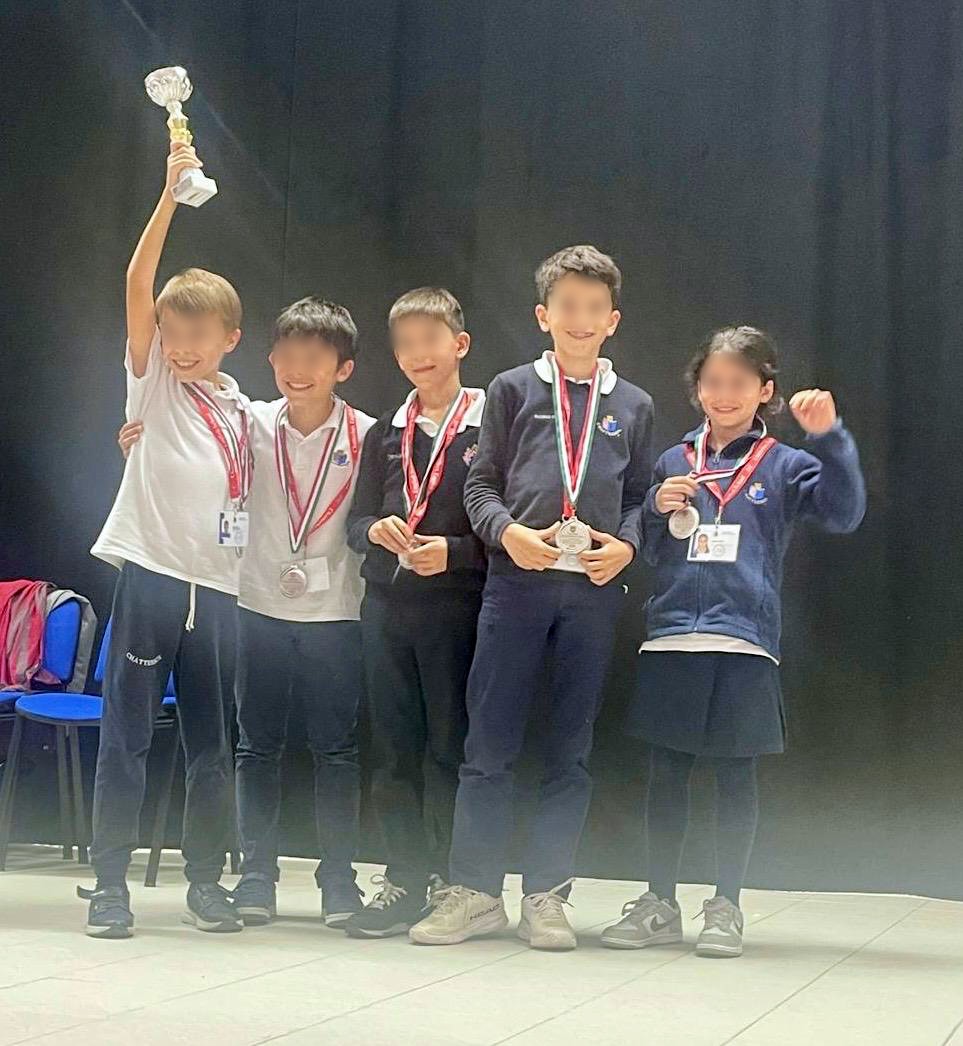
Q: What have been the most rewarding moments working with young chess players in our clubs? Is there a particular memory that stands out?
A: There have been many rewarding moments, especially in the past two years: more and more kids are joining tournaments and regularly attending the chess club, which has naturally raised the overall level.
But beyond the results, the most gratifying thing is seeing how chess is becoming a positive habit for many — a way to develop concentration and patience, and to take a break from the screens that fill up most of their free time. If we can help kids discover a healthy hobby that stays with them into adolescence, then we've truly hit the mark.
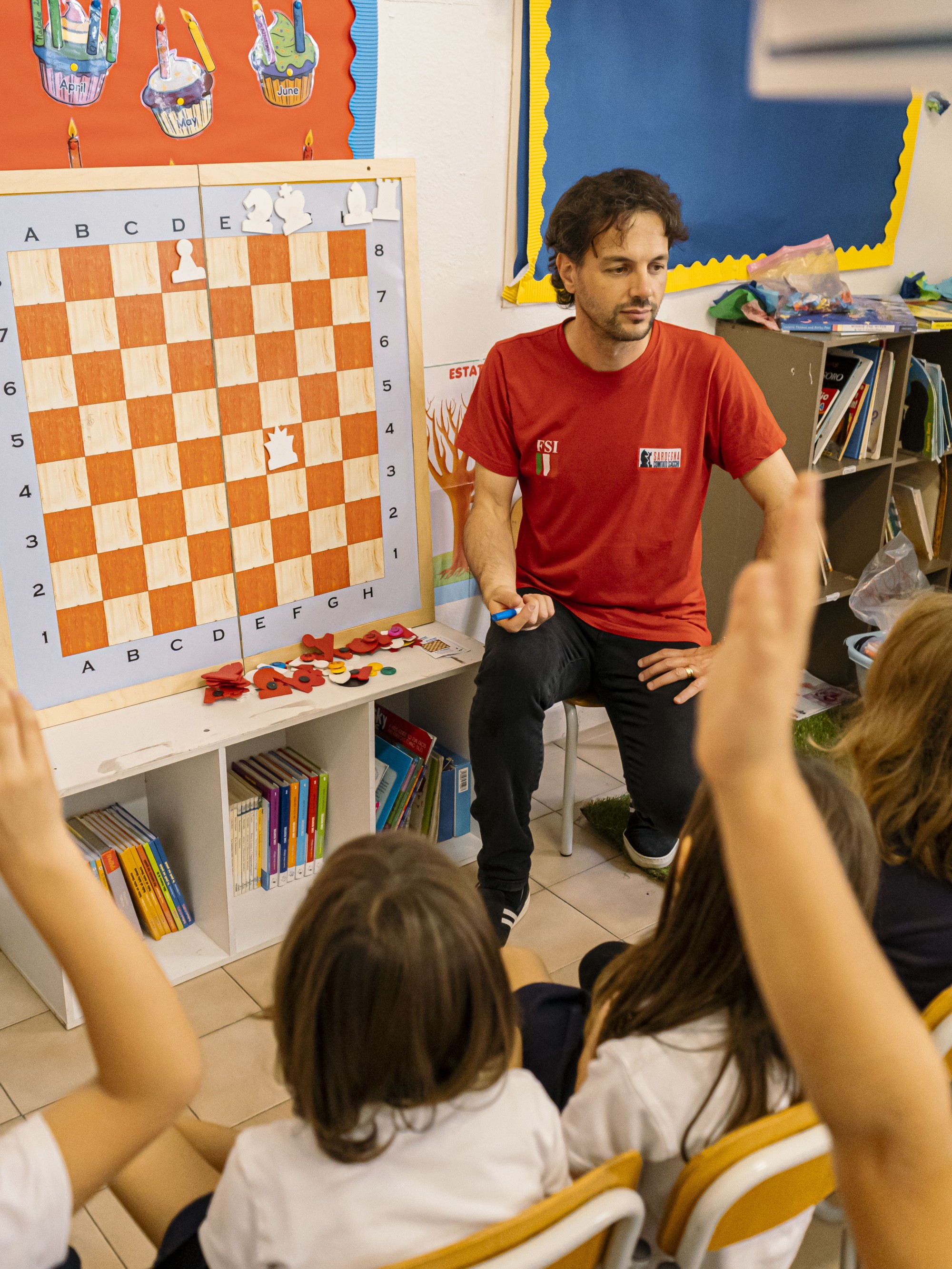
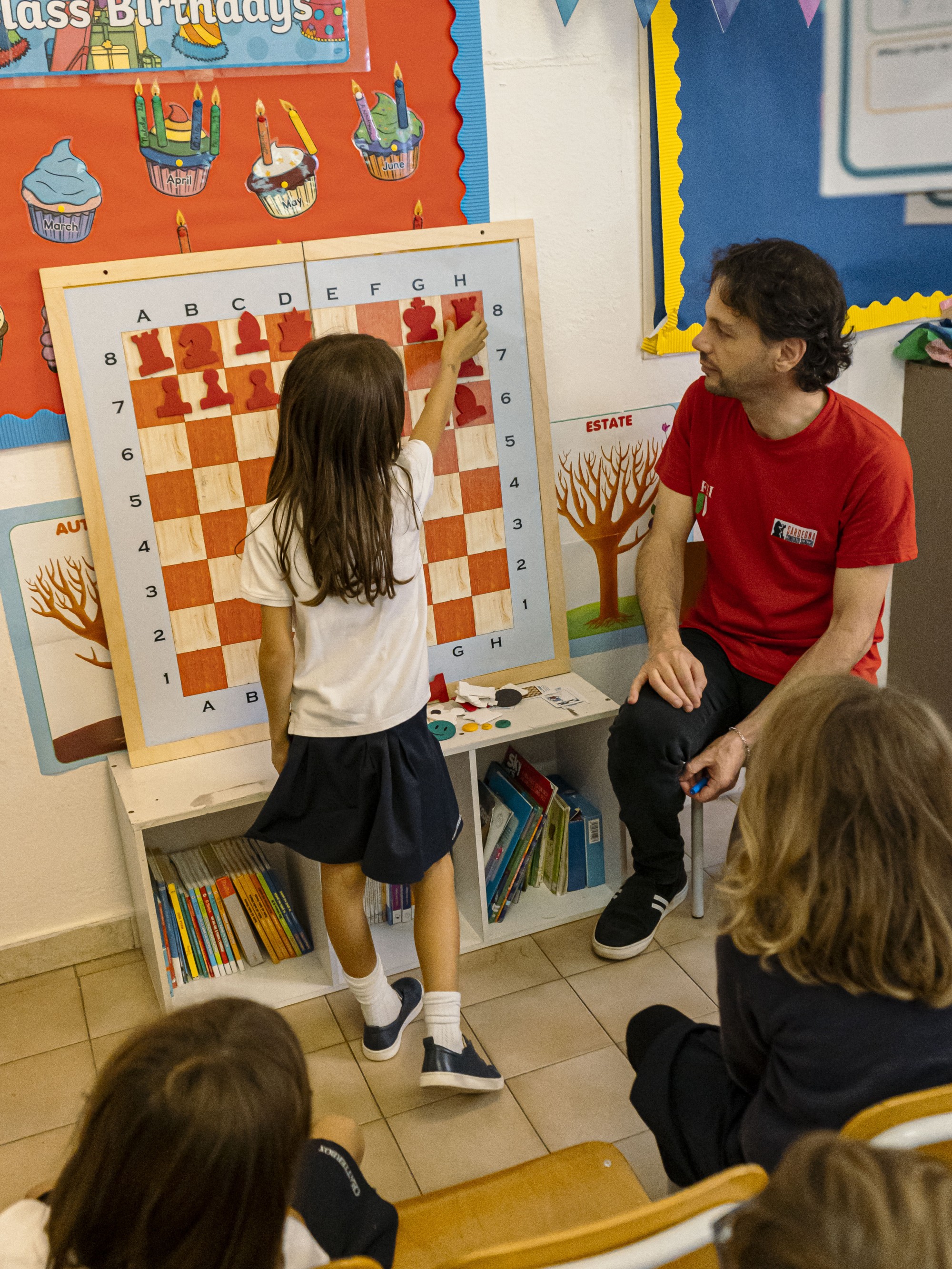
Q. What do you think are the benefits of introducing children to chess at an early age?
A: Starting chess at a young age teaches much more than just the rules of the game. It helps develop focus, memory, time management, and above all, critical thinking and the ability to make calm decisions under pressure.
Many expect instant results, but the real benefits often go beyond the chessboard: they emerge over time, in how kids learn to think, to be more patient, more independent, and more self-aware. In a fast-paced world that leaves little room for reflection, learning to think before acting is a crucial life skill.
And let’s not forget: chess also teaches you how to lose — and to do so with dignity, which is a very valuable lesson.
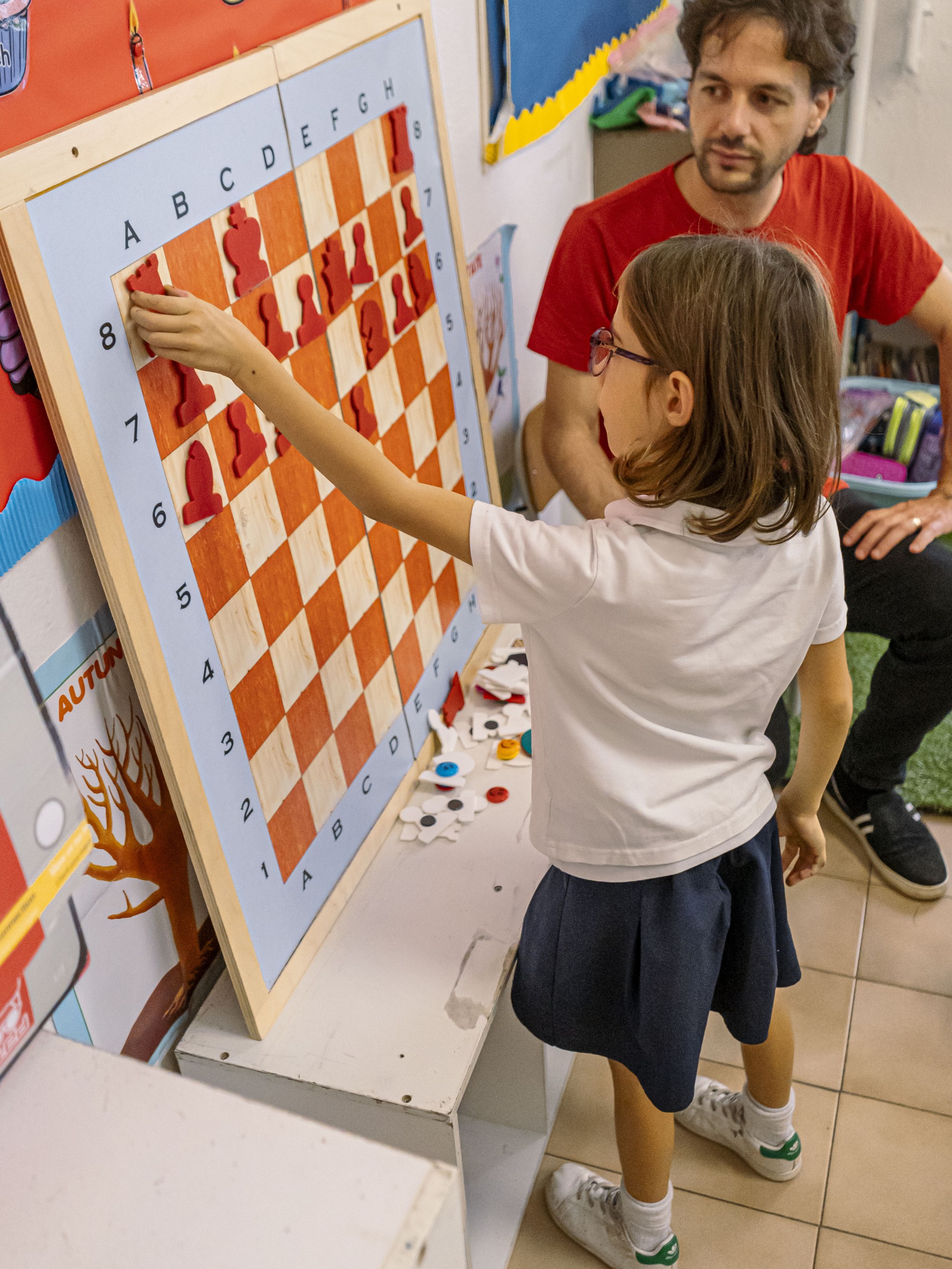
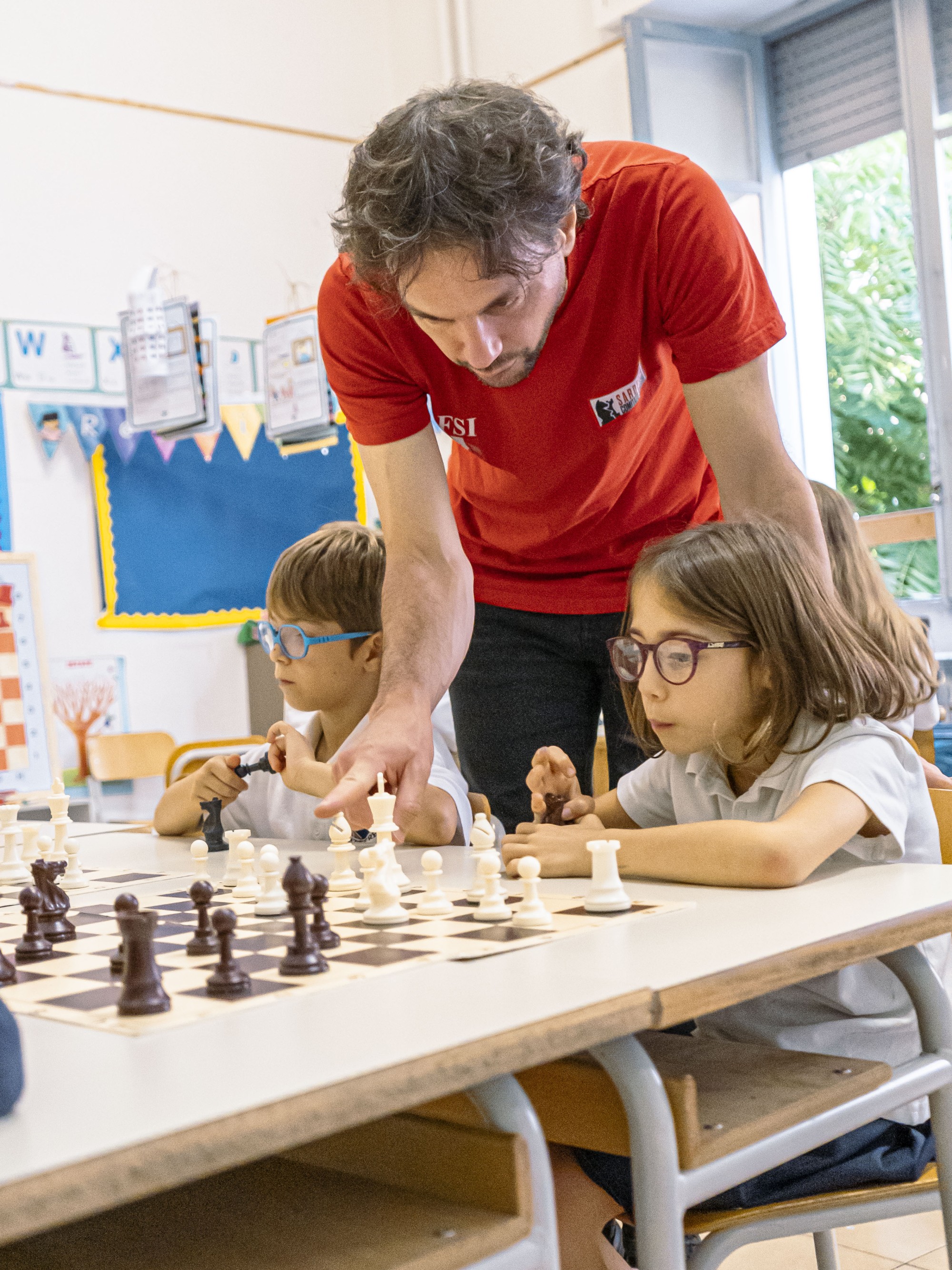
Q: Looking ahead, what projects do you have in mind to keep developing and promoting chess, not only with our students but also among young people more broadly, both locally and beyond?
A: Right now, I’m fully immersed in school clubs, which range from primary to high school, and in preparing for the National School Championships, where ten teams I coach will compete. Right after that, we’ll head into the Individual Youth Championships at the end of June/beginning of July in Terrasini (Palermo), with around fifty young players from Sardinia — most of them from our Cagliari-based movement, including a few Chatterbox students like Roberto L. and Clara A.
In the meantime, on May 25th we’ll be organizing a children’s tournament at the San Paolo Oratory in Piazza Giovanni, Cagliari, which is the home of our Mo.S.Ca. club, where I serve as president. It’s an event designed to give the youngest players a joyful and engaging playing experience.
Looking ahead, we’ll also be hosting a Chatterbox summer chess lab during the last week of June (23rd to 26th): a more intensive activity that builds on the work done throughout the year, but in a more open and creative setting — open even to those new to the game.
So no flashy plans, just concrete work: building local engagement, guiding the kids with consistency, and giving more and more young people the chance to discover a meaningful path through chess.
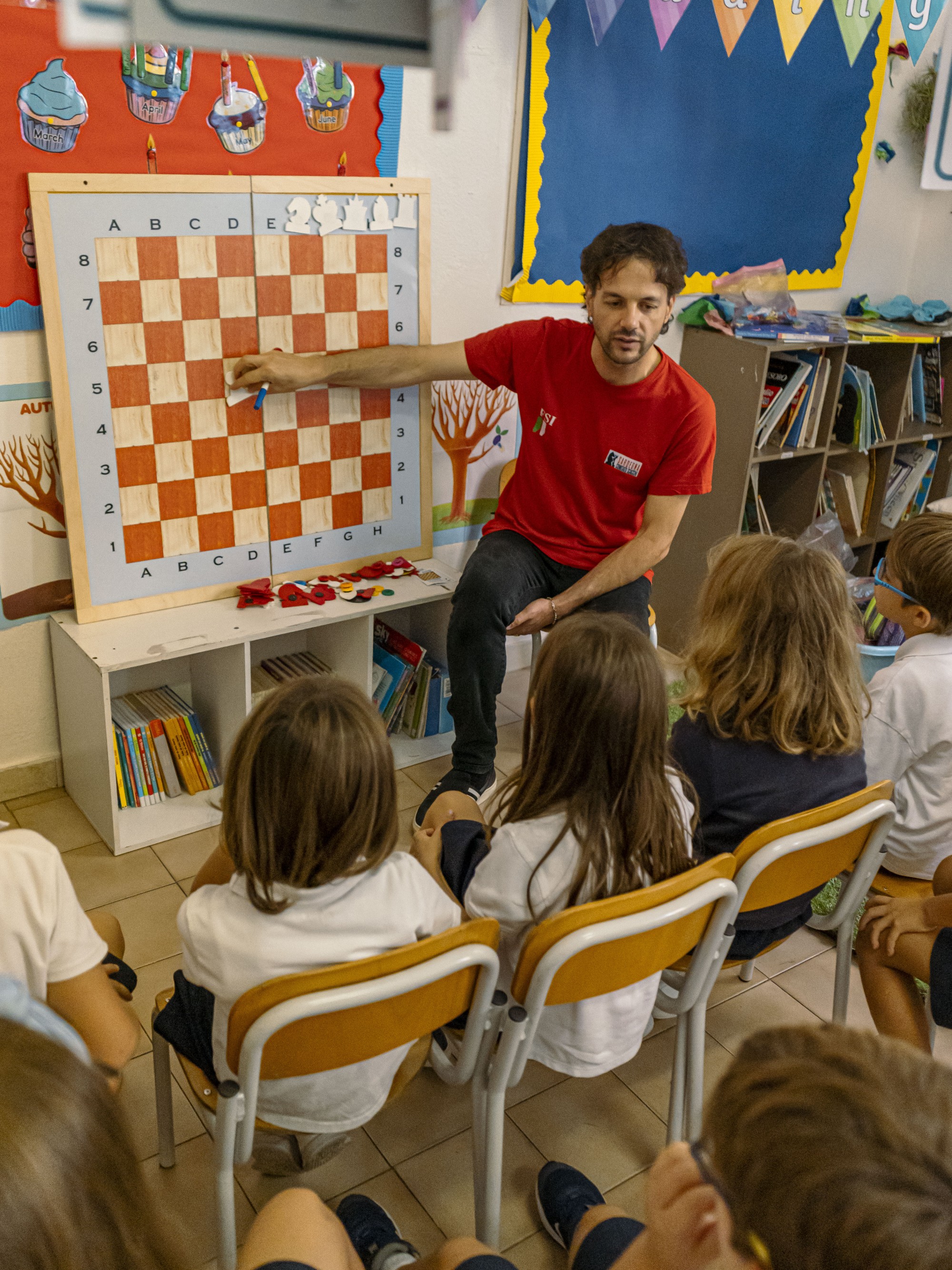
Q: Based on your experience, what advice would you give to young people who are interested in getting into chess and possibly pursuing it seriously?
A: My first advice is to approach chess with curiosity and patience. It’s a discipline that takes time to truly understand, but it offers so much from the very beginning — focus, independence, and the ability to think calmly and methodically.
Don’t get discouraged by early difficulties or the pressure to win right away. Chess is a journey: improvement comes gradually, even just by observing, playing, and making mistakes. The key is not to rush and not to measure everything by results.
Joining a group, taking part in local tournaments, and sharing the experience with peers can really help. Chess isn’t just an individual challenge — it’s also an opportunity to grow together.
Thank you so much Maestro Isacco for your time and we look forward to our next chess adventures — we can’t wait!
If you think the world of chess might intrigue your son or daughter, stay tuned: we’ll soon share all the details about our upcoming summer courses at school!*
*Courses are reserved to Chatterbox students.